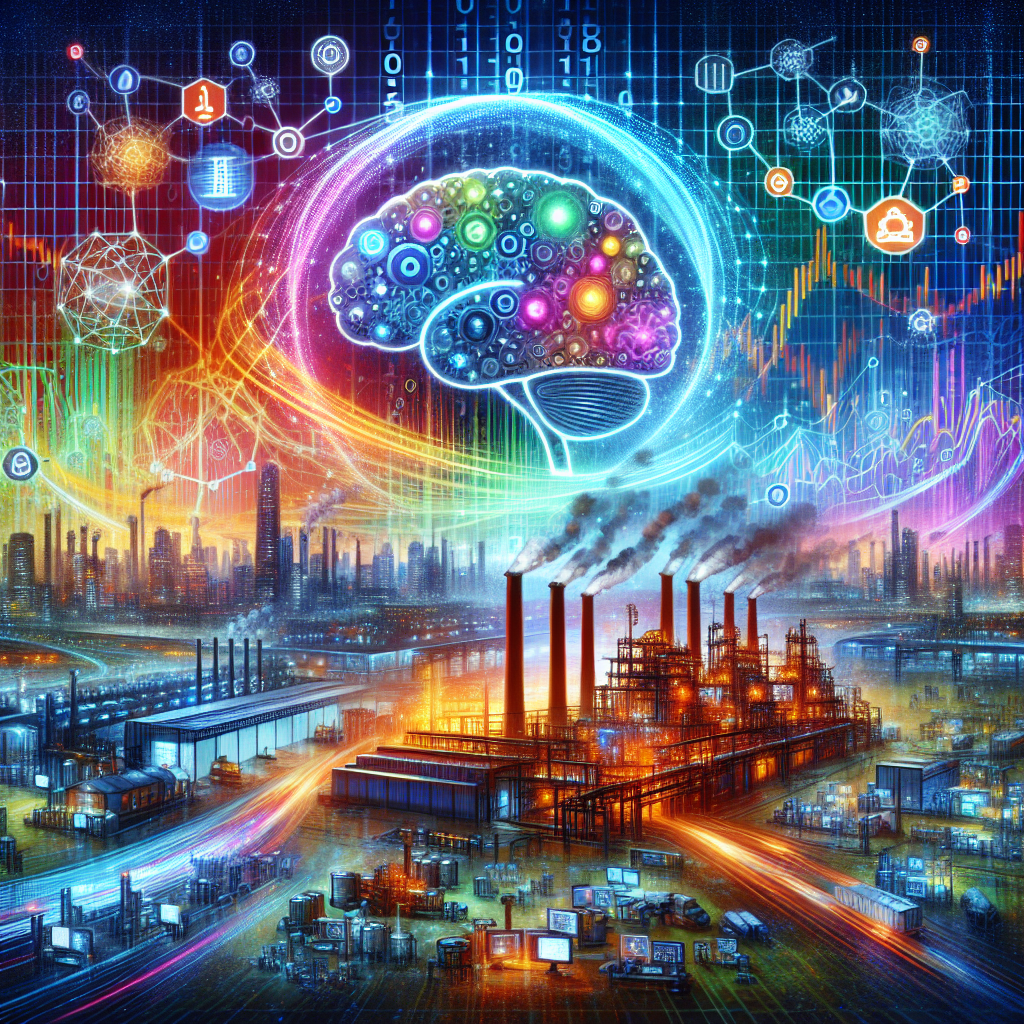Artificial General Intelligence (AGI) is a term that refers to the development of computer systems that can perform tasks typically requiring human intelligence. Unlike narrow AI, which is designed for specific tasks such as speech recognition or image classification, AGI aims to replicate the breadth and depth of human cognitive abilities.
The potential impact of AGI on industries and the economy is immense. From healthcare to finance, transportation to agriculture, AGI has the potential to revolutionize every sector. In this article, we will explore how AGI is transforming industries and reshaping the economy.
AGI in Healthcare
The healthcare industry stands to benefit greatly from the development of AGI. With the ability to analyze vast amounts of medical data and identify patterns that humans may overlook, AGI can assist in diagnosing diseases, predicting patient outcomes, and even developing personalized treatment plans. This can lead to more accurate diagnoses, faster treatment, and improved patient outcomes.
AGI in Finance
In the finance industry, AGI can be used to analyze market trends, predict stock prices, and automate trading strategies. By processing large amounts of financial data and identifying patterns, AGI can help financial institutions make more informed decisions and reduce risks. This can lead to more efficient markets, increased profitability, and reduced volatility.
AGI in Transportation
The transportation industry is also poised to benefit from AGI. Self-driving cars, trucks, and drones powered by AGI can improve road safety, reduce traffic congestion, and lower transportation costs. AGI can also optimize routes, schedules, and logistics, leading to more efficient transportation networks and reduced environmental impact.
AGI in Agriculture
In the agriculture industry, AGI can help farmers optimize crop yields, monitor soil quality, and predict weather patterns. By analyzing data from sensors, drones, and satellites, AGI can provide real-time insights and recommendations that can improve agricultural productivity and sustainability. This can lead to increased food production, reduced waste, and lower costs for farmers.
AGI in Manufacturing
In the manufacturing industry, AGI can improve production processes, quality control, and supply chain management. By automating tasks that require human intelligence, AGI can increase efficiency, reduce errors, and lower production costs. This can lead to faster time-to-market, improved product quality, and increased competitiveness for manufacturers.
AGI in Education
In the education sector, AGI can personalize learning experiences, adapt teaching methods, and provide feedback to students. By analyzing student data and performance metrics, AGI can identify individual learning needs and tailor instruction accordingly. This can lead to improved student outcomes, increased engagement, and more efficient use of resources in education.
AGI in Customer Service
In the customer service industry, AGI can enhance chatbots, virtual assistants, and voice recognition systems. By understanding natural language, sentiment analysis, and context, AGI can provide more personalized and efficient customer interactions. This can lead to improved customer satisfaction, reduced response times, and lower costs for businesses.
AGI and the Economy
The widespread adoption of AGI across industries will have a profound impact on the economy. AGI has the potential to increase productivity, drive innovation, and create new opportunities for growth. However, it may also lead to job displacement, income inequality, and ethical concerns related to privacy and security.
As AGI automates tasks that currently require human intelligence, certain jobs may become obsolete or require new skill sets. This can lead to unemployment or underemployment for workers in industries that are heavily reliant on manual or routine tasks. However, AGI can also create new job opportunities in fields such as AI research, data science, and robotics.
Income inequality may also widen as those with the skills and resources to adapt to the AGI-driven economy benefit disproportionately from its advancements. This can lead to social unrest, political instability, and challenges in ensuring equitable access to the benefits of AGI for all members of society.
Ethical concerns related to privacy and security may arise as AGI systems become more sophisticated and autonomous. Questions about data ownership, algorithm bias, and decision-making transparency may need to be addressed to ensure that AGI is developed and deployed responsibly. Regulations and policies may need to be implemented to protect individuals’ rights and mitigate potential risks associated with AGI.
FAQs
Q: What is the difference between AGI and narrow AI?
A: AGI aims to replicate the breadth and depth of human cognitive abilities, while narrow AI is designed for specific tasks. AGI can perform a wide range of tasks requiring human intelligence, while narrow AI is limited to specific domains such as speech recognition or image classification.
Q: How close are we to achieving AGI?
A: The development of AGI is still in its early stages, and there is no consensus on when it will be achieved. Some experts believe that AGI may be achieved within the next few decades, while others believe it may take longer. Continued research and advancements in AI technologies will be needed to realize the full potential of AGI.
Q: What are the potential risks of AGI?
A: AGI has the potential to bring numerous benefits to society, but it also poses risks. Job displacement, income inequality, ethical concerns, and security risks are some of the potential risks associated with AGI. It will be important to address these challenges proactively to ensure that AGI is developed and deployed responsibly.
In conclusion, AGI has the potential to revolutionize industries and transform the economy in profound ways. From healthcare to finance, transportation to agriculture, AGI has the power to improve efficiency, drive innovation, and create new opportunities for growth. However, it will be important to address the potential risks and challenges associated with AGI to ensure that its benefits are shared equitably and responsibly. Continued research, collaboration, and dialogue will be essential in realizing the full potential of AGI for the benefit of society as a whole.

